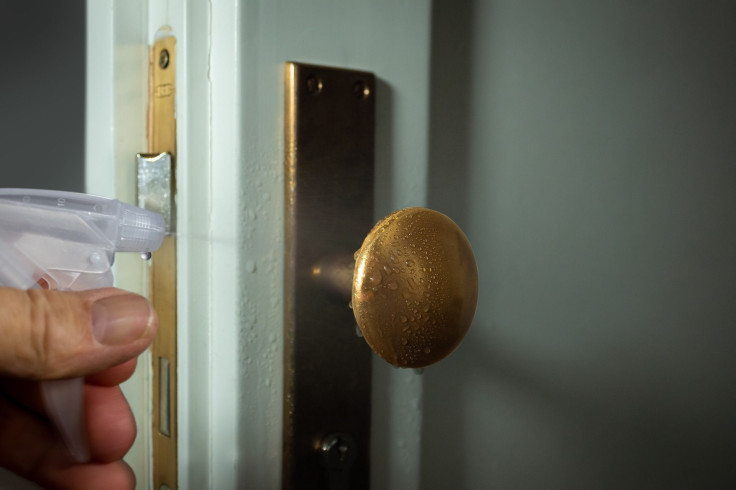A Virginia Tech Professor Creates Surface Coating That Inactivates The Coronavirus Within An Hour

KEY POINTS
- Due to the surge in the number of COVID-19 cases, many people live in fear of contracting the disease from touching surfaces
- Scientists assure a new surface coating painted on common objects can inactivate the virus
- Within an hour of coating a surface with the new substance, there was a 99.9% reduction in the virus load
Fear of getting infected with the novel coronavirus by touching shared surfaces continues to run rampant among the public these days. Due to the rapid surge in the number of COVID-19 cases, people panic about using door knobs, elevator buttons and light switches. A Virginia Tech professor might have found a solution to this.
For the past few months, William Ducker, a chemical engineering professor has been working on developing a surface coating that when painted on common objects has the potential to inactivate the novel coronavirus.
He has been collaborating with experts at the University of Hong Kong’s School of Public Health to test the film’s potential at inactivating SARS-CoV-2 since mid-April.
"The idea is when the droplets land on a solid object, the virus within the droplets will be inactivated. One hour is the shortest period that we have tested so far, and tests at shorter periods are ongoing," MedicalXpress quoted Ducker.
The results of the tests have been outstanding. When they coated glass or stainless steel with their new coating, they found a 99.9% reduction in the virus load within an hour, compared to uncoated surfaces.
"It was an interesting experience. Almost the entire campus was shut down, and we were like ghosts wandering the empty halls of Goodwin Hall. But it was very exciting to have such a clear goal. I know that it was a difficult time for many people who were bored, unhappy, or scared. We were just focused on making a coating," MedicalXpress quoted Ducker.
The new anti-coronavirus surface coating comprises cuprous oxide (Cu2O) particles bound with polyurethane.
The polyurethane-based substance has the advantage of already being used to coat numerous everyday objects. Not only does this new coating adhere well with glass and stainless steel objects but also with several other items that are used every day.
The researchers found the new coating performs well in the cross-hatch durability test and remains intact and active even after immersing it in water for 13 days or exposing it to multiple cycles of virus and disinfectants.
The researchers are now awaiting funding to mass-produce the film. They also highlighted the new coating doesn’t replace other precautionary measures like hand washing, wearing masks and social distancing.
© Copyright IBTimes 2025. All rights reserved.






















